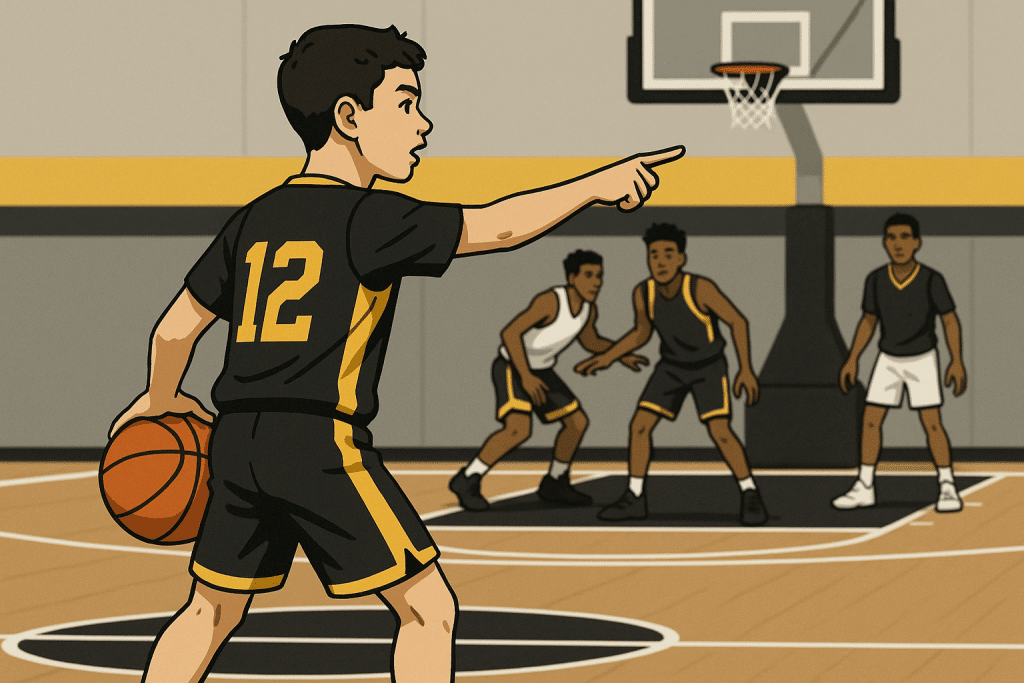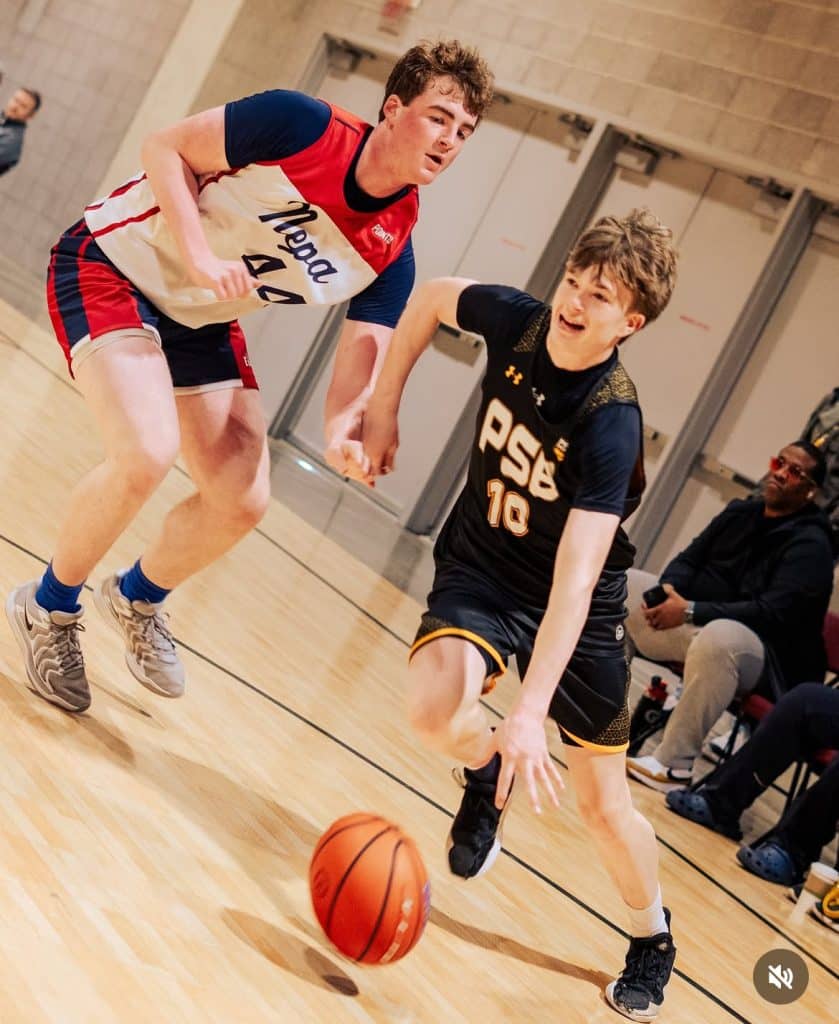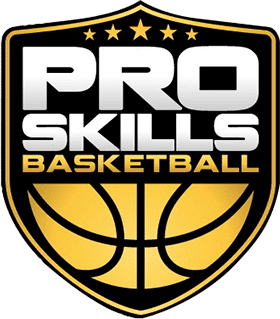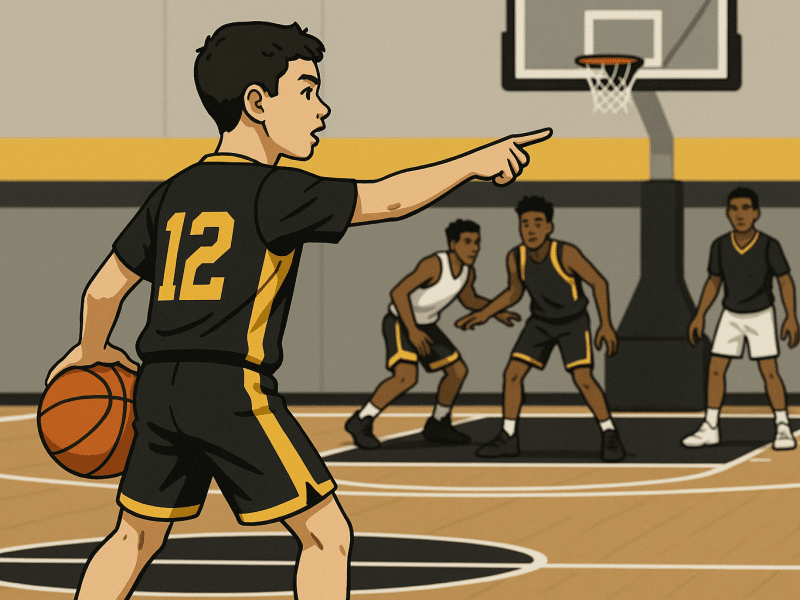
How to Be a Great Facilitator in Basketball: 3 Keys for Youth Players
In today’s basketball world—from youth leagues and middle school to high school and AAU—facilitators are often the most underrated but impactful players on the court.
They’re the quarterbacks. The glue guys. The ones who make everything work.
At Pro Skills Basketball (PSB), we define a basketball facilitator as a player who gets teammates involved, reads the game in real-time, and puts others in the best position to succeed. They don’t need to score the most points—but they often lead in making the right decisions that help teams win.
Whether you’re a youth player hoping to make your school team or already competing on a club team, here are the 3 essential traits you need to become a great facilitator in basketball.
#1: Know Your Personnel (KYP)

“KYP!”—you’ve probably heard your coach yell it before. It means “Know Your Personnel,” and it’s the foundation of being a high-level facilitator.
Facilitators put their teammates in their sweet spots. But you can only do that if you understand:
-
Where teammates are most effective (e.g. corner shooter, low-post scorer, transition threat)
-
How they like to score (e.g. catch-and-shoot, off-ball cuts, isolation)
-
What their limitations are (e.g. weak left hand, poor ball handling under pressure)
For example, if you have a shooter like Kyle Korver or Klay Thompson, you need to know how to deliver the ball on time, in rhythm, and in their shooting pocket. That means recognizing actions like pin-down screens and preparing to pass before they even call for it.
On the flip side, maybe your big man struggles to catch bounce passes in traffic. As the facilitator, you adjust—maybe with a lob or a quick chest pass instead.
The best facilitators think like coaches and play like teammates. They maximize others’ strengths while minimizing weaknesses. That’s the definition of leadership.
#2: Communicate Constantly
Facilitation isn’t just physical—it’s verbal.
If you want to be the engine of your team, communication is non-negotiable. You should be:
-
Calling out plays and sets
-
Identifying mismatches (“Mouse in the house!”)
-
Directing teammates to spots on the floor
-
Encouraging teammates when energy dips
Facilitators are vocal leaders who help guide their team through the chaos of live play. That doesn’t mean yelling just to yell. It means clear, confident direction—especially in high-pressure moments like late-game situations, broken plays, or when your team is struggling.
The best teams talk on offense and defense. Great facilitators keep everyone connected, calm, and ready.
#3: Master the Offense (Every Position, Every Option)
This might be the most overlooked trait of a great youth basketball facilitator—knowing the entire offense, not just your spot.
When you understand the responsibilities of every position, you can:
-
Anticipate where players will be open
-
Recognize when a play breaks down and how to adapt
-
See multiple reads and make the right choice quickly
For example, if your team runs a motion offense or a Read & React system, you should understand spacing, timing, and movement patterns. What happens if the first screen is denied? What’s the counter if the defense switches?
Let’s say you’re running a play for a shooter with 20 seconds left, down three. If you know the play well, you can guide it to the first, second, or even third option depending on how the defense reacts. That kind of awareness separates average players from high-IQ ones.
Film study, asking questions, and repping different positions in practice are all ways to build this knowledge.
Why Facilitators Win Games
Being a great facilitator in basketball isn’t about flashy highlights or filling up the stat sheet. It’s about:
✅ Understanding your teammates
✅ Using your voice to lead
✅ Studying the game like a coach
✅ Making smart, unselfish decisions
These are the things coaches at every level—from middle school to college—prioritize. A facilitator lifts the whole team and makes everyone around them better.
And here’s the best part: facilitation is a skill you can develop.
You don’t need elite athleticism. You need effort, vision, and a hunger to learn.
So take pride in being the player who connects everything. Watch your teammates. Talk on the court. Understand the game.
Because when the facilitator levels up, the whole team does too.



 »
»